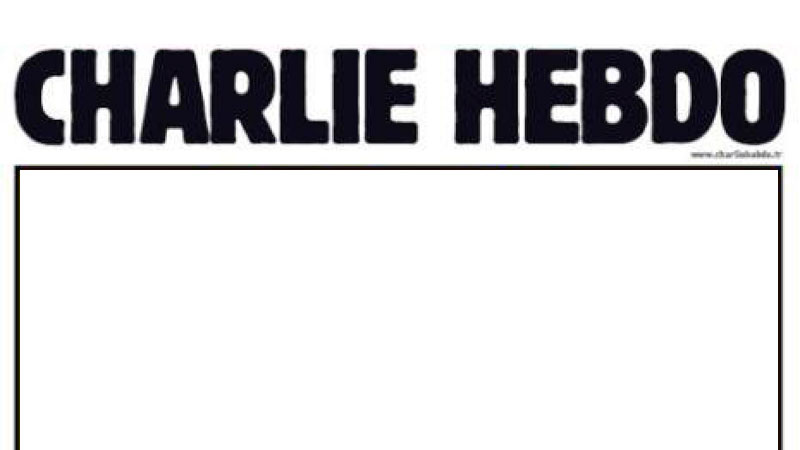
Image edited by Kevin Rothrock.
The latest issue of Charlie Hebdo, the French satirical magazine attacked last week by terrorists, is fetching hundreds of dollars on eBay today. But if you're searching for a glimpse of the magazine's new cover art on Sputnik, search engine released in beta last year by the Russian government, you won't find much at all.
Earlier today, Russian Internet users discovered that Sputnik returns almost no image-search results for “Charlie Hebdo” (in Latin script or Cyrillic), regardless of the searcher's moderation settings. Searches on Google and Yandex for the same queries, meanwhile, deliver dozens of images of Charlie Hebdo’s cover art over the years.
The decision by the Kremlin-owned search engine comes a day after a regional branch of Russia’s media watchdog, Roskomnadzor, threatened newspapers with criminal liability for publishing caricatures of religious figures. In a special letter to the local media, Kamchatka’s Roskomnadzor office warned that it would prosecute anyone who published such content as an “extremist.”
Meanwhile, in the predominantly Muslim republic of Chechnya, Ramzan Kadyrov has labeled Echo of Moscow Chief Editor Alexey Venediktov and exiled oligarch Mikhail Khodorkovsky “enemies of the Muslim faith,” after the two men encouraged journalists to continue Charlie Hebdo’s brand of satire. Today, the Chechen government announced plans to hold a mass demonstration of “hundreds of thousands of people” in Grozny against “anti-Islamic publications in the Western media.”
According to the Russian website TJournal.ru, Sputnik’s parent company, Rostelekom, is refusing so far to comment on its apparent filtration of Charlie Hebdo cover art.
In September 2014, the news agency Inferfax published a study of Sputnik’s “first 100 days” online, finding that the search engine’s initial audience shrank by 90 percent in that time. “In its first 100 days, interest in Sputnik has fallen almost to zero,” the report concluded.





